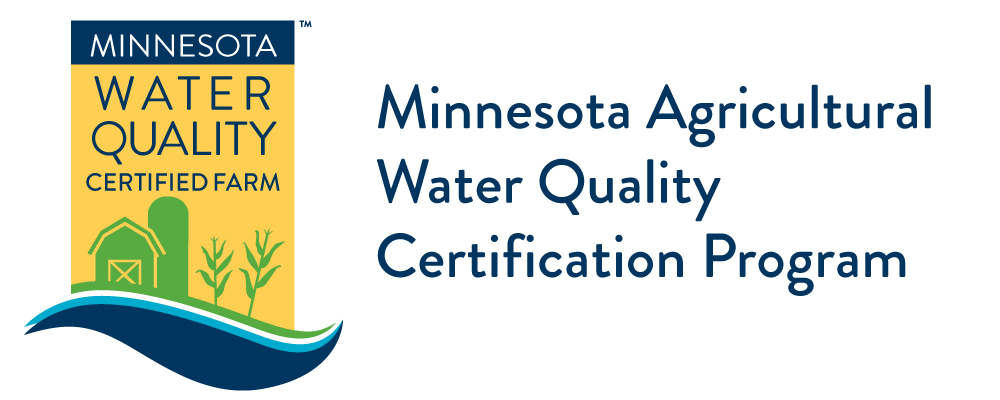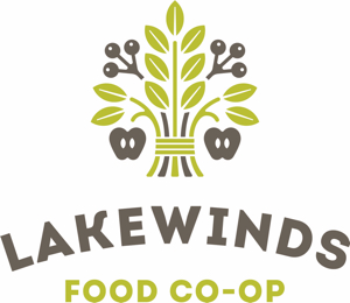A Look Back at Our Annual Conference Sessions & Features from 2025
Night Before Social
Kids Program
For children ages 5 - 12. Supervised activities during the breakout sessions: 9:20am-12:20pm and 1:40-4:30pm.
Kids will have lunch with their adults from 12:20 - 1:40pm.
Advance registration required.
 Farm & Food Book Swap
Farm & Food Book Swap
Upstairs Elevator Lobby
Bring books to share and take one or two at the book swap table!
SCION SWAP
Fruit growers: Try out new varieties from scions at the Scion Swap.
Room 204A
Wisdom of the Community SESSIONS
101 = beginner; 201 = intermediate; 301 = advanced
Schedule At-a-Glance (descriptions below)
Room 204A, B & C
8:30am: "Opening Welcome"
Room 204A
9:40am: "Scaling up for Wholesale as a Small Farm"
11:10am: "Packshed and Post-Harvest Equipment Farmer Panel"
1:50pm: "Garlic: A Look Back at the 2024 Season"
3:20pm: "Growing and Selling Ginger and Turmeric"
Room 204B
9:40am: "Taming the Workload"
11:10am: "Building a Profitable Farm Business"
1:50pm: "Ecological Succession: The Key to Working with Nature"
3:20pm: "Exploring Minnesota Climate-Smart Grants"
Room 204C
9:40am: "Parasite Management"
11:10am: "Emerging Farmer Networking"
12:20pm: "Emerging Farmers Lunch"
1:50pm: "Emerging Farmer Roundtables"
3:20pm: "Compost"
Room 120A&B
9:40am: "Food Hubs"
11:10am: "Creating a Win-Win: Grazing Heifers"
1:50pm: "Mentorship and Technical Assistance through TOPP"
3:20pm: "Happy Halal: New Goat/Lamb Facility and Clean Chickens"
Full Schedule
Scaling up for Wholesale as a Small Farm: Crops, Infrastructure, Equipment and Food Safety (101)
Room 204A
Annalisa Hultberg, UMN Extension Educator
Ariel Pressman, UMN Extension Consultant
Is your fruit and vegetable farm thinking of getting into wholesale markets? Have you recently started working with Local Food Purchase Assistance (LFPA), Farm to School or a food hub?
Learn the basic building blocks needed to be successful as you scale up. This will include several low-cost packshed designs that are food safe and work well on rented land; post-harvest equipment that can make your farm more efficient; and grading standards and best practices for wholesale markets. Ariel, a former long-term wholesale vegetable farmer, will talk about how to determine the best crops and varieties to grow for wholesale, and how to make sure you can meet your contracts. Annalisa will show you common sense and simple ways to make your farm products safer and higher quality.
Taming the Workload: Profitable Work Management on a Small Diversified Farm (301)
Room 204B
Joel Barr, Abraham's Table Farm
Joel Barr's farm in Sandstone, MN, produces and direct-markets organic produce, pasture-raised eggs, chicken, and beef. Managing a small team across four enterprises is complicated, but by implementing a comprehensive lean, analog management system, Abraham's Table Farm is able to stay on track during the busy season and maintain a strict 40-hour work week for all employees. In this talk Joel will give an overview of his farm and explain how they tame the workload, remain focused on their top priorities and drive profits with their simple yet flexible work management system.
Parasite Management in Livestock Herds (101)
Room 204C
Kari Ripley-Boysen, veterinary technician & livestock farmer
Lindsey Zemanek, livestock farmer & trained specialist in nature-based therapeutics
Finding a large animal veterinarian to come out to your farm can be tricky, costly and a test of patience. The Wifery Livestock Skills Consortium will lead this crash-course in basic identification of common livestock parasites using compound microscopes and pre-made slides. The Wifery will also offer treatments from an organic and pharmaceutical perspective, along with management techniques for your herd.
Food Hubs: Improving Community Health and Farmer Vitality (201)
Room 120A&B
Maeve Mallozzi-Kelly, Farmers' Market Aggregation Project Coordinator
Allison Rian, Aitkin Farmers’ Market Hub manager
Kelley Rajala, Clear Lake Gardens, Aitkin
Food Hubs are wonderful community assets, though they can be difficult to start and maintain. Many hubs have closed their doors within the first two years of operation, leaving behind unused infrastructure and frustrated farmers. Renewing the Countryside, however, has been taking a ground-up approach to help build out our food hub network across the state since 2015 with their Farmers’ Market Aggregation model. Learn how you can get connected to our existing network or start a food hub in your own community.

10:50 a.m. Break & Exhibits
11:10 a.m. Sessions
Packshed and Post-Harvest Equipment Farmer Panel (201)
Room 204A
Ariel Pressman, UMN Extension Consultant
Annalisa Hultberg, UMN Extension Educator
Join this engaging panel discussion as farmers share insights into a variety of packshed designs and equipment options suitable for farms of all scales and types. Moderated by Ariel Pressman, a former wholesale vegetable farmer and current UMN Extension consultant, alongside Annalisa Hultberg, who specializes in food safety, this session offers valuable takeaways for specialty crop growers on both rented and owned land.
Bring your questions and curiosity to learn from the diverse experiences of our farmer panelists!
Building a Profitable Farm Business: From Mindest to Strategy (301)
Room 204B
Rachelle Meyer, Farmer and Consultant VIA ZOOM
This session continues where Rachelle Meyer’s impactful session on time management from last year left off. Learn how shifting your mindset and applying advanced business strategies can drive growth, efficiency, and profitability on your farm. Rachelle and her husband, Jordan, manage a diverse regenerative farm with sheep, goats, and dairy cattle, while offering custom grazing and consulting services. Drawing on her experience, Rachelle will provide actionable insights to help farmers take their operations to the next level.
Emerging Farmer's Town Hall (101)
Room 204C
Gather with other emerging farmers in a casual Town Hall setting to discuss 2024 bright spots and challenges and meet the staff of the MDA Emerging Farmers Office. Learn more about new and existing resources and assistance available through their office.
Emerging Farmer's Networking Lunch
Room 204C
Directly following the session, stick around for a taco bar lunch and an opportunity to continue conversation in the same room! No lunch ticket is needed.
Creating a Win-Win: Grazing Heifers for Economic and Ecological Returns (301)
Room 120A&B
Sarah Lloyd, UMN Forever Green Initiative, and UW-Madison Grassland 2.0 Project
Doug Voss, SFA Senior Technical Advisor
Raising replacement dairy heifers in managed grazing systems can provide solid economic savings and ecological improvements at the farm and watershed level. We will explore the forage production, animal health and enterprise level financial opportunities, as well as the farm- and watershed-level water quality and soil health outputs of heifer grazing. We will also discuss transition costs as well as what successful custom heifer grazing operations could look like. Dr. Sarah Lloyd will share key takeaways from work with farmers in the Big Eau Pleine watershed in central Wisconsin and introduce the Heifer Compass decision support tool. Experienced custom dairy heifer grazier Doug Voss from Paynesville, MN will share about his operation and how he manages his pasture and forage and the relationship with the "sending" dairy farm. The session will include time for discussion about what opportunities and challenges there are in Minnesota for dairy heifer grazing as an economic and ecological strategy.
Garlic: A Look Back at the 2024 Season (201)
Room 204A
Chris Kudrna, Plum Creek Garlic
Paul Schmidt, Schmidt Farm
Dr. Carl Rosen, Professor, University of Minnesota Department of Soil, Water and Climate
Jerry Ford, Moderator, Upper Midwest Garlic Growers Group Coordinator
2024 was a challenging year for many garlic growers in our region. Even though some reported bumper harvests, the uncommonly wet conditions left us with mold, fungus, and other damage, and the aster yellows phytoplasma (AYP) problem was probably the worst since 2012. And some growers had difficulty with sales as well. This will be a frank and open discussion with our panelists and the growers present in the room. We'll also touch on research being done by Dr. Rosen on pre-chilling seed garlic.
Ecological Succession: The Key to Working with Nature (201)
Room 204B
Jonathan Kilpatrick, SFA Farmer Education Director
Is your pasture not as productive as it once was, even after years of rotational grazing? Curious about why weeds persist in pastures and crop fields? Join Jonathan Kilpatrick to explore how ecological succession affects these landscapes and discover chemical- and tillage-free methods to restore their productivity. Learn about the role of weeds as “nature’s cover crop” and how they contribute to the ecosystem. This session will provide you with practical tools to understand and leverage natural processes, creating healthier, more resilient pastures and fields. If you’ve heard the phrase “work with nature, not against it” but are unsure where to start, this session is for you.
Emerging Farmer Topic Tables (101)
Room 204C
After lunch, we'll switch focus to addressing specific topics that are important to you. Looking for help with land access or financing? Tips for improving your fruit and vegetable production? Equipment or practice change financial incentives? Help with your farm business or mental and cultural wellness? Experts on these and other topics will be available to answer your questions and connect you with helpful resources.
Mentorship and Technical Assistance through the Transition to Organic Partnership Program (101)
Room 120A&B
Zachary Paige, Sustainable Ag and Food Systems Coordinator for the UMN Extension NW Regional Sustainable Development Partnerships
Caroline Hegstrom. The Boreal Farm
Learn all about the TOPP program and other new organic programs through the University of Minnesota and how to get involved. The Transition to Organic Partnership Program (TOPP) connects farmers and makers that are transitioning to organic practices with experienced people who serve as mentors who guide mentees through the transition process and offer valuable insights into their journey into organic farming. Zach Paige and Caroline Hegstrom are working with a coalition of UMN staff from Extension, MISA, the Student Organic Farm and more. Zach is the Sustainable Ag and Food Systems Coordinator for the UMN Extension NW Regional Sustainable Development Partnerships and is the owner of North Circle Seeds, a certified organic vegetable seed company. Caroline Hegstrom owns a 25-acre certified organic diversified operation, The Boreal Farm.
3:00 p.m. Break & Exhibits
3:20 p.m. Sessions

Growing and Selling Ginger and Turmeric in the Upper Midwest (101)
Room 204A
Melissa Driscoll, Seven Songs Organic Farm
Melissa Driscoll has over a decade of experience growing and selling ginger and turmeric. From pre-selling to local food makers and co-ops in mid-winter, sprouting ginger in an unused walk-in cooler in early spring, planting in low or high tunnels by mid-May, and harvesting in the fall, Melissa has fine-tuned her process for success. In this session, she’ll share insights from a three-farm ginger growing experiment, tips for disease management, and strategies for maximizing financial yield by utilizing every part of the plant.
Exploring Minnesota Climate-Smart Grants (101)
Room 204B
Ryan Sullivan, SFA, “Minnesota Climate-Smart Seedling Production Network”
Tyler Carlson, The Nature Conservancy, “Expanding Agroforestry Project”
Dave Weirens, Minnesota Board of Water & Soil Resources, “Alliance to Advance Climate-Smart Agriculture”
Lucinda Winter, moderator, SFA Executive Director
Learn about three of the 30+ Climate-Smart, USDA-funded competitive grant programs currently open to Minnesota farmers and landowners. These three programs will be of interest to those considering implementing agroforestry, tree seedling production, livestock or crop production, or other conservation practices. Presenters will share an overview of each grant’s goals and the incentives available to participants. Come away knowing whether any of these grants might be a good fit for your operation and what steps to take next to learn more.
Compost: What It Is, How to Make It, and How to Use It (201)
Room 204C
Doug Voss, Senior Technical Advisor
Compost can be a great tool for enhancing soil health and providing essential nutrients when properly produced and applied. Join Doug Voss as he dives into the fundamentals of quality compost—what makes it effective, how to apply it, and its impact on soil health. This session will cover key aspects of compost production, application methods, and evaluation techniques. Whether you’re a seasoned composter or exploring its potential for the first time, you’ll find valuable insights and practical takeaways in this engaging session.
Happy Halal: New Goat/Lamb Facility and Clean Chickens’ Expanded Services (201)
Room 120A&B
Greg Wierschke, Happy Halal
Rebecca Wierschke, Happy Halal
Join Greg and Becky as they share the journey of Clean Chickens and Co.: from revolutionizing mobile poultry processing with the only USDA-certified mobile unit for small producers in the U.S., to becoming a key driver of local food systems. Learn why they expanded their focus to include goats and lambs and how this led to the creation of Happy Halal, a new goat and lamb slaughter facility in Willmar. This session will cover the vision behind Happy Halal, specifics on the plant's development, services offered, and how it serves the Midwest region's producers. Get insights on rendering, timelines for producers, and various buying models. Bring your questions and learn how these innovative efforts will transform local livestock production!





